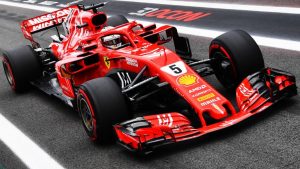It is futile to do with more what can be done with less.
—William of Ockham, 1323
Finding the appropriate way to deal with an endless reality is the first and most important step when choosing or developing an investment strategy. Ludwig von Mises showed us that no model can contain social reality in its whole, so it may seem counterintuitive that the simplest strategies are the ones most likely to survive in the complex world of financial markets.
Evolution teaches us that, when talking about survival in complex and unpredictable environments, it is preferable to be an ugly cockroach than a cute panda bear. In fact, a simple cockroach can survive unpredictable and violent changes in their environment, while the panda will perish as soon as a small change in humidity, temperature or a brief shortage of bamboo happens. In other words, from an evolutionary point of view, the simpler the strategy (like a species in an ecosystem), the more likely it will survive unknown changes of future market dynamics. Insisting on simplicity is a competitive advantage over other investment services or products that focus on increasing the complexity and sophistication of their strategies, making them fragile to the unavoidable and unexpected changes in market dynamics.
The most robust and least risky strategy to face the unavoidable complexity and uncertainty of markets is simplicity, providing us with the most robust and lasting competitive edge.
The “complex & fancy” versus the “simple & boring” Dilemma
Imagine you have to commute to the office for a whole year, and you have to choose between a simple and boring bicycle and a fancy high-tech Formula-1.
 vs
vs 
- Which vehicle seduces you most to drive?
- Which vehicle is more likely to break down and leave you stranded after a while?
The first question appeals to your emotions and desires, to what you would like (regardless of reality or what is best for us).
The key is in the second question because it focuses us on the real problem: the Formula-1 is more likely to break down as soon as any unexpected change in the road appears or any of its plethora of fragile sub-systems breaks. The overwhelming multiplication of elements and complex systems not only makes machines fragile but also makes sophisticated investment strategies fragile.
In vehicles as in investments, if you really want results, do not focus on what seduces you most, but on what is most effective, prudent and practical.
When it is about your money, Boring is Good
Some will think the Austrian Strategy is a “boring strategy”. But as Nobel Prize Paul Samuelson said regarding investing with our hard-earned money, we have to avoid excitement (as “Formula-1 investments”) and embrace boring, simple and robust strategies (as a bicycle):
“Investing should be more like watching paint dry or watching grass grow. If you want excitement, take $8000 and go to Las Vegas“.
The intellectual Humility versus Hubris Dilemma
The Austrian Strategy is a logical consequence of truly taking into account the epistemological limitations of the markets. There is an epistemological limit to our knowledge about social sciences. Some systems in our Universe are able to be predicted with the right tools and hard work (as for example the next eclipse, chemical reactions or machines as a car engine), but we are not able to predict the future of chaotic systems or social phenomena such as economics, politics or markets —no matter how many tools or resources we provide for the work (to understand why → here).
To accept that we cannot predict some systems —i.e. having the necessary intellectual humility—, allows us to focus on where we are able to control and to add value. The Austrian Strategy truly takes into account these intrinsic limitations and accept its consequences on investing. So the Austrian investor is a humble investor that does not fall for the siren songs of new mathematical models that presumably can predict the future —as new econometrics, big data, gurus, etc.— so common in the investment industry and mass media today.
Simplicity and humility mean the achievement of maximum effect with minimum means. The aim of the Austrian Strategy is not to be the next fancy strategy —impressive by its “cleverness” or highly mathematical sophistication—, but as the bicycle and cockroach examples, to truly provide to the investor the simple investment choice that works in order to meet their investment objectives.
“The knowledge of how little you can know about the future, coupled with the acceptance of your ignorance, is the defensive investor’s most powerful weapon.”
—Benjamin Graham, 1949